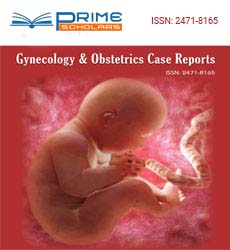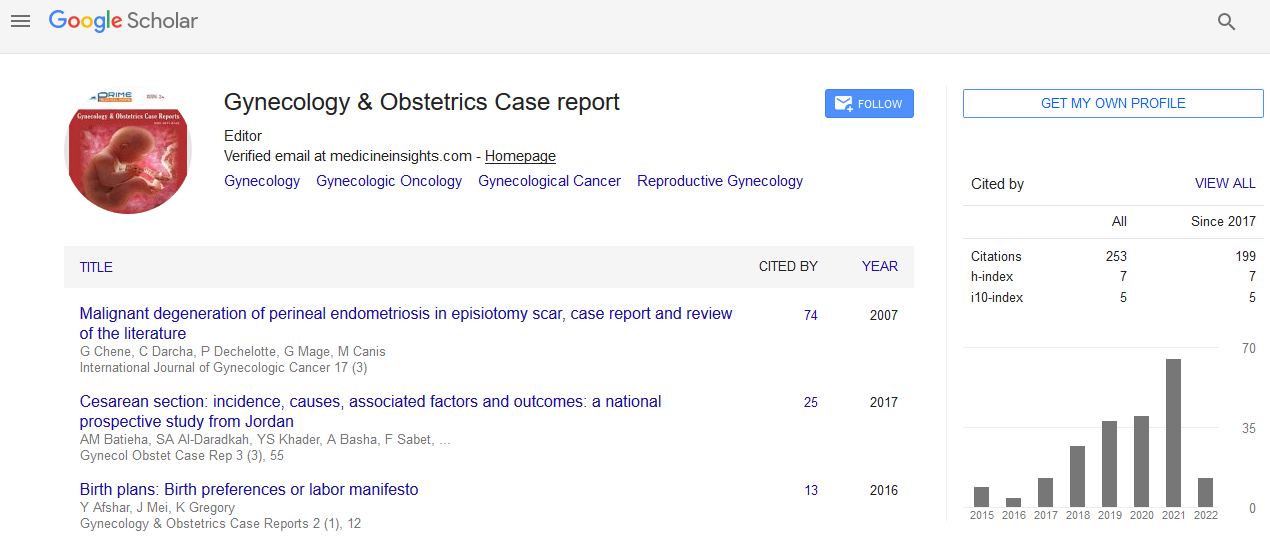Editorial - (2022) Volume 8, Issue 1
In Gynaecologic Oncology, Research on Cancer Care Delivery is Being Conducted
Karl Mathew*
Department of Obstetrics and Gynecology, University of Virginia School of Medicine, USA
*Correspondence:
Karl Mathew, Department of Obstetrics and Gynecology, University of Virginia School of Medicine,
USA,
Email:
Received: 03-Jan-2022, Manuscript No. IPGOCR-22-12411;
Editor assigned: 05-Jan-2022, Pre QC No. IPGOCR-22-12411 (PQ);
Reviewed: 10-Jan-2022, QC No. IPGOCR-22-12411;
Revised: 15-Jan-2022, Manuscript No. IPGOCR-22-12411 (R);
Published:
20-Jan-2022, DOI: 10.21767/2471-8165.100003
Editorial
Patients who do not receive innovative cancer treatments will suffer. Furthermore, access to mainstream cancer care is hampered by large demographic, social, and geographic differences. The term "cancer care delivery research" refers to studies that look at "how social factors, financing systems, organisational structures and processes, health technologies, and healthcare provider and individual behaviours affect cancer outcomes, access to and quality of care, cancer care costs, and the health and well-being of cancer patients and survivors." CCDR encompasses a variety of process and outcome-based issues and draws on a variety of scholarly fields, including sociology, psychology, and economics. Patient-centered outcomes research, dissemination and implementation sciences, and epidemiology are all objects of research in health services research. In the year 2015, the National Cancer Institute (NCI) has increased its focus on CCDR, by establishing the Healthcare Delivery Research Program within the Division of Cancer Control and Population Sciences of the Division of Cancer Control and Population Sciences of the Division of Cancer Control and Population Sciences. To analyse and prioritise cancer, the CCDR Steering Committee was formed Concepts for health-care delivery research [1,2]
CANCER CARE
As a result, the National Clinical Trials Network's member groups (SWOG, Alliance, ECOGACRIN, COG, and NRG Oncology) have established strategic priorities for CCDR in addition to typical illness site-specific agendas. While identifying and improving patient, clinician, and organisational factors that affect cancer care delivery has always been a priority, these new national priorities provide unprecedented potential for CCDR assistance and incentivize terminology and research technique standardisation. In this paper, we lay forth a framework for gynecologic oncology cancer care delivery study. We hope that this framework clarifies the scope of the CCDR and guides the systematic development of research into the implementation of high-quality care for gynecologic malignancies. There are four major phases in the treatment of gynecologic malignancies: When a cancer diagnosis is made, phase one (pre-diagnosis) comes to an end. Phase 2 (Pre-Therapy) begins after the diagnosis and concludes with the start of treatment; Phase 3 (Treatment) begins with the start of treatment and ends with the completion of treatment. Phase 4 (Post-treatment/Survivorship) begins when treatment is completed and concludes when therapy is resumed or when the patient dies. While the specifics of studies focusing on different disease sites may vary, these phases are useful for categorising general elements of cancer care delivery (e.g., cancer screening [Phase 1], specialty care after diagnosis [Phase 2], treatment adherence to best-practices guidelines [Phase 3], and implementation of recommended surveillance schedules during survivorship [Phase 4]).
Collaboration between oncologists, patients, and healthcare organisations is essential for successful cancer care delivery. As an outcome, investigators should analyze each party's contribution to the desired outcomes while establishing CCDR research initiatives. If intraperitoneal (IP) chemotherapy is being considered, factors influencing physicians' recommendations, patients' preferences for IP chemotherapy over other options, the organisational capability of treatment centres to deliver IP therapy and insurance coverage for this intervention must all be considered. A full overview of each phase of the gynecologic malignancies continuum of care is provided below. Each section includes examples of patient, physician, and organisational characteristics linked to cancer care delivery, as well as citations to relevant research studies. Some components of treating cancer, for example, may span numerous phases. For example, cancer care's "financial toxicity" can harm patients and carers at any moment, from the time of diagnosis until the end of life [3-5]. However, understanding these processes in the context of the precise periods in which they occur may be useful.
REFERENCES
- Kumari S (2020) Gynaecologic cancer care during COVID‐19 pandemic in India: a social media survey. Cancer Reports 3(5): e1280.
[Google Scholar], [Crossref], [Indexed at]
- Lazar JN, Johnson-Agbakwu CE, Davis OI, Shipp MP (2013) Providers' perceptions of challenges in obstetrical care for Somali women. Obstet Gynecol Int 2013(1): 1-12.
[Google Scholar], [Crossref], [Indexed at]
- Giammarile F, Bozkurt MF, Cibula D, Pahisa J, Oyen WJ, et al. (2014) The EANM clinical and technical guidelines for lymphoscintigraphy and sentinel node localization in gynaecological cancers. Eur J Nucl Med Mol Imaging 41(7): 1463-1477.
[Google Scholar], [Crossref], [Indexed at]
- Motoshima S, Irie H, Nakazono T, Kamura T, Kudo S (2011) Diffusion-weighted MR imaging in gynecologic cancers. Journal of Gynecologic Oncology 22(4): 275-287.
[Google Scholar], [Crossref], [Indexed at]
- Allen J (2003) The clinical nurse specialist in gynaecological oncology—the role in vulval cancer. Best Pract Res Clin Obstet Gynaecol 17(4): 591-607.
[Google Scholar], [Crossref], [Indexed at]
Citation: Mathew K (2022) In Gynaecologic Oncology, Research on Cancer Care Delivery is Being Conducted. Gynecol Obstet Case Rep. Vol.8 No.1:3. DOI: 10.21767/2471-8165.100003.
Copyright: © 2022 Mathew K. This is an open-access article distributed under the terms of the Creative Commons Attribution License, which permits unrestricted use, distribution, and reproduction in any medium, provided the original author and source are credited.

